Numerical Methods & Mathematical Analysis 2
Bachelor in Electrical and Computers Engineering
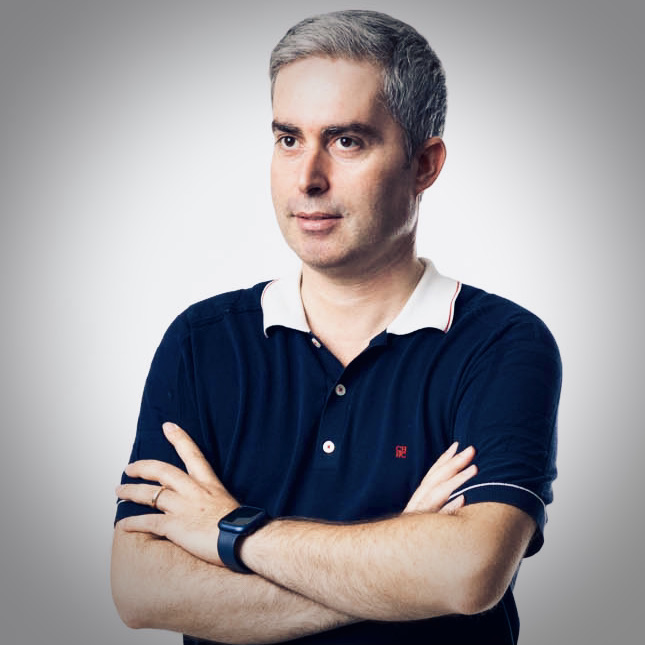
I am currently a Doctorate Auxiliary Researcher and Lecturer at the Faculty of Engineering of the University of Porto and I have been developing my work in the areas of optimal control and model predictive control having a particular interest in nonlinear and constrained problems.
Continuing my Ph.D. research, I am interested in increasing the accuracy of numerical solutions of optimal control problems obtained via direct methods, mainly by developing fast adaptive time-mesh refinement algorithms. I am also interested in optimal control applications, namely in the energy, robotics, and health fields.
Doctorate Auxiliary Researcher (FCT-Tenure)
DEEC, Faculty of Engineering, University of Porto, Porto
Invited Lecturer
ISEP, School of Engineering, Polytechnic of Porto, Porto
Senior Researcher
ISR-Porto, Institute for Systems and Robotics - Porto, Porto
Applied Mathematics
University of Porto, Faculty of Science, Porto
Computer Methods for Sciences & Engineering
University of Porto, Faculty of Science, Porto
Applied Mathematics
University of Porto, Faculty of Science, Porto
Bachelor in Electrical and Computers Engineering
Bachelor in Electrical and Computers Engineering
Bachelor in Electrical and Computers Engineering
Bachelor in Electrical and Computers Engineering
Master degree in Electrical and Computers Engineering
Master degree in Electrical and Computers Engineering
First degree in Informatics Engineering
First degree in Informatics Engineering
First degree in Automotive Engineering
Master degree in Management
First degree in Civil Engineering, Computer Engineering, Environmental Engineering, Engineering and Quality Management
¹First degree in Civil Engineering, Computer Engineering, Environmental Engineering, Engineering and Quality Management
²First degree in Business Sciences
¹First degree in Civil Engineering, Computer Engineering, Environmental Engineering, Engineering and Quality Management
²First degree in Business Sciences
First degree in Civil Engineering, Computer Engineering, Environmental Engineering, Engineering and Quality Management
First degree in Physics
¹First degree in Mathematics
²First degree in Applied Mathematics and Mathematics Applied to Technology
³First degree in Physics
¹First degree in Applied Mathematics and Mathematics Applied to Technology
²First degree in Physics
I am currently a Postdoctoral Research Associate at the University of Porto and I have been developing my work in the areas of optimal control and model predictive control having a particular interest in nonlinear and constrained problems.
Continuing my Ph.D. research, I am interested in increasing the accuracy of numerical solutions of optimal control problems obtained via direct methods, mainly by developing adaptive time-mesh refinement algorithms.
I am also interested in optimal control applications, namely in the energy, robotics, and health fields.
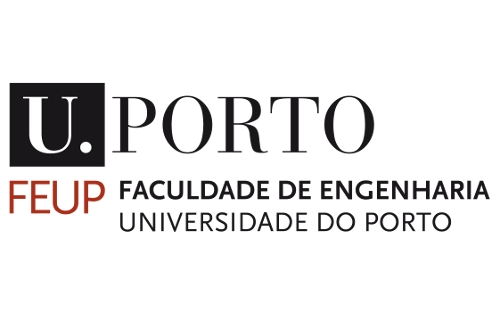
Software: ICLOCS, AMPL, IPOPT, Matlab.

Software: ICLOCS, AMPL, IPOPT, Matlab.

Software: ICLOCS, AMPL, IPOPT, Matlab.

Software: ICLOCS, AMPL, BOCOP, IPOPT, KNITRO, Matlab.
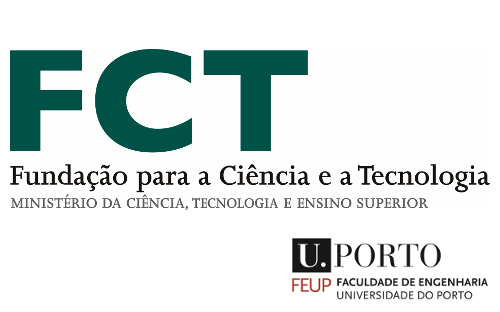
Main responsibilities: To develop a framework for the control of Hybrid Systems through Optimization-based Control techniques, which use Global Optimization Methods, namely: (a) to develop or select an appropriate framework to model and simulate hybrid systems; (b) to develop and/or adapt Optimal Control and Model Predictive Control techniques to the context of our hybrid systems framework; (c) to develop and/or adapt Global Optimization algorithms to be used in optimization-based control techniques; (d) to apply the developed techniques to problems in the areas of robotics, automotive systems, power systems, health and the environment.
Software: ICLOCS, AMPL, BOCOP, IPOPT, KNITRO, Matlab.

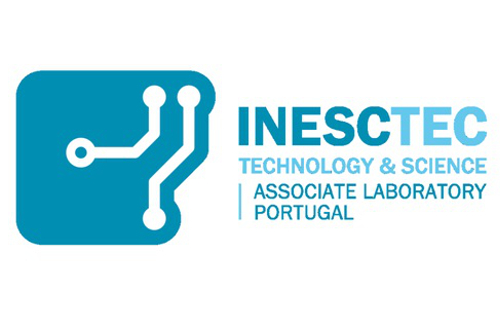

Main responsibilities: To build and maintain a software platform to test and illustrate the use of the conceptual tools developed during the overall project: not only in academic examples but also in case studies in the areas of robotics, medicine and exploitation of renewable resources.
Software: Matlab, ICLOCS, AMPL, IPOPT.

Main responsibilities: To collaborate on the development of forecasting system of wind-based electric power encompassing physical and statistical models with intel from different fields, such as meteorological forecasting, simulation of complex meso and micro-scale flows, operational data of wind-farms and of the grid.
Software: Matlab, OpenFOAM, PARAMESH, Tecplot, VENTOS.
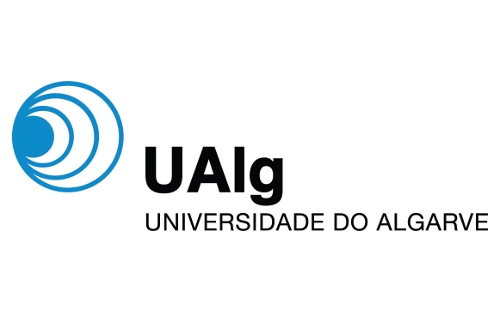
Main responsibilities: To model the pattern of tectonic stress in the Algarve shore, using finite element methods in 2D and 3D. To determine the rheological stratification of the lithosphere in the Gulf of Cadiz and adjacent region and to develop models of mechanical behavior of the lithosphere to identify areas of accumulation of stress that can generate earthquakes.
Main results: We built a 3D model of faults of the Gulf of Cadiz. We developed a new graphic software to analyze the potential for displacement faults.
Software: Matlab, COULOMB, Mirone, GiD, CUBIT, Pylith.

Main responsibilities: To develop an automated procedure to detect significant changes in several time series to be included in a Network Intelligence System for decision support that identifies and monitors market opportunities. Data: EUROSTAT.
Main results: We designed and implemented PHP algorithms which analyse data, estimate the best model as well as prediction bands, achieving results in a quickly and efficiently way. The company got a new highly innovative product aimed to detect areas of opportunity and to support decisions that generate profitable realities and optimised costs.
Software: SPSS, R. MySQL with PHP.
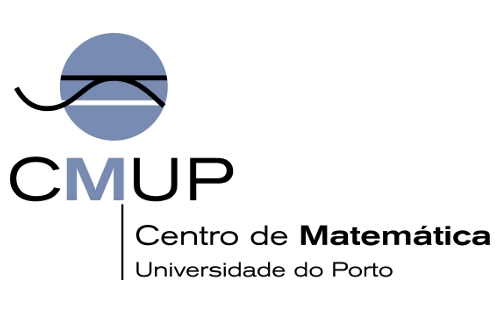
Main responsibilities: To develop a toolbox for orthogonal polynomials and their characterizations, generalizations and applications. To develop all the documentation that supports the toolbox.
Main results: We implemented a new add-on for Mathematica, including a user manual, which was presented at the Wolfram Technology Conference 2005 by invitation of Wolfram Research. We started conversations for a partnership with Wolfram Research. I became alpha / beta tester of the new versions of Mathematica.
Software: Mathematica.

Main responsibilities: To develop activities for collecting and processing information and operating Neural Networks and Geographic Information Systems. Data: CENSOS2001.
Main results: We developed decision trees to determine the ideal parishes and municipalities of residence and work for immigrants in the Porto Metropolitan Area (AMP). All immigrant communities of AMP were characterized in detail. This work was published by the High Commissioner for Immigration and Ethnic Minorities.
Software: MatLab, SPSS, ArcView.
We consider a farm of Kite Power Systems (KPS) in the field of Airborne Wind Energy (AWE), in which each kite is connected to an electric ground generator by a tether. In particular, we address the problem of selecting the best layout of such farm in a given land area such that the total electrical power generated is maximized. The kites, typically, fly at high altitudes, sweep a greater area than that of traditional wind turbines, and move within a conic shaped volume with vertex on the ground station. Therefore, constraints concerning kite collision avoidance and terrain boundaries must be considered. The efficient use of a given land area by a set of KPS depends on the location of each unit, on its tether length and on the elevation angle. In this work, we formulate the KPS farm layout optimization problem. Considering a specific KPS and wind characteristics of the given location, we study the power curve as a function of the tether length and elevation angle. Combining these results with an area with specified length and width, we develop and implement a heuristic optimization procedure to devise the layout of a KPS farm that maximizes wind power generation.
We address the problem of generating electrical power through Airborne Wind Energy Systems, using a kite connected to a generator on the ground. We propose a controller to steer the kite to follow a pre-defined eight-shaped path based on a nonlinear guidance logic. The controller has an easy implementable explicit form, has asymptotic stability guarantees and a large domain of attraction. We report simulations of a complete production cycle, including a production phase and a recovery phase. Also, we provide a Lyapunov stability analysis.
This article addresses the problem of controlling a constrained, continuous-time, nonlinear system through Model Predictive Control (MPC). In particular, we focus on methods to efficiently and accurately solve the underlying optimal control problem (OCP). In the numerical solution of a nonlinear OCP, some form of discretization must be used at some stage. There are, however, benefits in postponing the discretization process and maintain a continuous-time model until a later stage. This is because that way we can exploit additional freedom to select the number and the location of the discretization node points. We propose an adaptive time-mesh refinement (AMR) algorithm that iteratively finds an adequate time-mesh satisfying a pre-defined bound on the local error estimate of the obtained trajectories. The algorithm provides a time-dependent stopping criterion, enabling us to impose higher accuracy in the initial parts of the receding horizon, which are more relevant to MPC. Additionally, we analyze the conditions to guarantee closed-loop stability of the MPC framework using the AMR algorithm. The numerical results show that the proposed AMR strategy can obtain solutions as fast as methods using a coarse equidistant-spaced mesh and, on the other hand, as accurate as methods using a fine equidistant-spaced mesh. Therefore, the OCP can be solved, and the MPC law obtained, faster and/or more accurately than with discrete-time MPC schemes using equidistant-spaced meshes.
In the context of continuous-time control systems, we address the problem of guaranteeing that the constraints imposed along the trajectory are in fact satisfied for all times. The problem is relevant and non-trivial in situations in which a continuous-time internal representation of the system is used with a digital device, such as in sampled-data model-based control, in an optimal control solver, or in sampled-data model predictive control. In this letter, we establish a condition that when verified on a finite set of time instants (using limited computational power) can guarantee that the trajectory constraints are satisfied on an uncountable set of times. The case of constrained optimal control problems is further explored here. We develop an algorithm for the numerical solution of constrained nonlinear optimal control problems that combines a guaranteed constraint satisfaction strategy with an adaptive mesh refinement strategy.
In this article we investigate the problem of generating electricity through an underwater kite power system (UKPS). For this problem, we develop the dynamical model for the UKPS and we formulate an optimal control problem to devise the trajectories and controls of the kite that maximize the total energy produced in a given time interval. This is a highly nonlinear problem for which the optimization is challenging. We also develop a numerical solution scheme for the optimal control problem based on direct methods and on adaptive time-mesh refinement. We report results that show that the problem can be quickly solved with a high level of accuracy when using our adaptive mesh refinement strategy. The results provide a set of output power values for different design choices and confirm that electrical energy that can be produced with such device.
...
In this paper, we address the generation of electrical power using Airborne Wind Energy Systems, comprising a kite connected through a tether to a generator on the ground. We design a controller to steer the kite to follow a pre-defined periodic path, which includes a production mode, a tether retrieval mode, and a safe mode capable of handling wind gusts.
In this work we address the problem of switching the shape of a formation of undistinguishable nonholonomic mobile robots. Each agent moves from the current to its target oriented position using the shortest path. We combine results from previous work on optimal formation switching when the agents are holonomic with results on the structure of the shortest path for nonholonomic agents.
This article addresses the problem of optimizing electrical power generation using kite power systems (KPSs). KPSs are airborne wind energy systems that aim to harvest the power of strong and steady high-altitude winds. With the aim of maximizing the total energy produced in a given time interval, we numerically solve an optimal control problem and thereby obtain trajectories and controls for kites. Efficiently solving these optimal control problems is crucial when the results are used in real-time control schemes, such as model predictive control. For this highly nonlinear problem, we derive continuous-time models — in 2D and 3D —a nd implement an adaptive time-mesh refinement algorithm. By solving the optimal control problem with such an adaptive refinement strategy, we generate a block-structured adapted mesh which gives results as accurate as those computed using fine mesh, yet with much less computing effort and high savings in memory and computing time.
In this work we address the problem of generating electricity through Kite Power Systems. We solve an optimal control problem which devises the trajectories and controls for the kite that maximize the total energy produced in a given interval. This is a highly nonlinear problem for which the optimization is challenging. We use a continuous–time model of the kite and implement time mesh–refinement strategies to solve the problem. We report results that show that with an adaptive mesh refinement strategy the problem can be solved with a high level of accuracy and (in simplified versions) much faster.
We address the problem of generating electricity through Underwater Kite Power Systems. For this problem, we develop an optimal control problem formulation using a continuous-time model of the kite to devise the trajectories and controls for the kite that maximize the total energy produced in a given time interval. This is an highly nonlinear problem for which the optimization is challenging. We also develop a numerical solution scheme for the optimal control problem based on direct methods and on adaptive time-mesh refinement. We report results that show that the problem can be quickly solved with a high level of accuracy when using our adaptive mesh refinement strategy. The results confirm the values of electrical power that can be produced with such device.
We address optimal control problems for nonlinear systems with pathwise state-constraints. These are challenging non-linear problems for which the number of discretization points is a major factor determining the computational time. Also, the location of these points has a major impact in the accuracy of the solutions. We propose an algorithm that iteratively finds an adequate time-grid to satisfy some predefined error estimate on the obtained trajectories, which is guided by information on the adjoint multipliers. The obtained results show a highly favorable comparison against the traditional equidistant–spaced time–grid methods, including the ones using discrete–time models. This way, continuous–time plant models can be directly used. The discretization procedure can be automated and there is no need to select a priori the adequate time step. Even if the optimization procedure is forced to stop in an early stage, as might be the case in real-time problems, we can still obtain a meaningful solution, although it might be a less accurate one. The extension of the procedure to a Model Predictive Control (MPC) context is proposed here. By defining a time–dependent accuracy threshold, we can generate solutions that are more accurate in the initial parts of the receding horizon, which are the most relevant for MPC.
We address sampled-data nonlinear Model Predictive Control (MPC) schemes, in particular we address methods to efficiently and accurately solve the underlying continuous-time optimal control problems (OCP). In nonlinear OCPs, the number of discretization points is a major factor affecting the computational time. Also, the location of these points is a major factor affecting the accuracy of the solutions. We propose the use of an algorithm that iteratively finds the adequate time–mesh to satisfy some pre–defined error estimate on the obtained trajectories. The proposed adaptive time–mesh refinement algorithm provides local mesh resolution considering a time–dependent stopping criterion, enabling an higher accuracy in the initial parts of the receding horizon, which are more relevant to MPC. The results show the advantage of the proposed adaptive mesh strategy, which leads to results obtained approximately as fast as the ones given by a coarse equidistant–spaced mesh and as accurate as the ones given by a fine equidistant–spaced mesh.
Optimal control theory has gained increasing importance in biomedical applications, e.g., in the automatic administration of anesthetics during general anesthesia. One example of a monitored state is the depth of anesthesia, which is usually achieved by the joint administration of hypnotics and analgesics. This state is quantified by the bispectral index that varies between 97.7% and 0%. On the other hand, the amount of drug to be administered should be optimized both for patient health and for economical reasons. This motivates the use of optimal control in this field of application. In this contribution, a static state--feedback control law is considered. In order to determine a suitable feedback gain, a nonlinear optimal control problem is formulated and solved using direct methods. These methods have become increasingly useful when computing the numerical solution of an optimal control problem. Moreover, they are known to provide a very robust and general approach.
In this paper the neuromuscular blockade level and the bispectral index level tracking problems by means of automatic control are considered in the context of general anesthesia. These tracking problems are formulated as optimal control problems that are numerically solved using direct methods. The results shown in this paper are preliminaries but illustrates a good performance of this strategy when applied to biomedical problems.
When using direct methods to solve nonlinear optimal control, regular time meshes having equidistant spacing are most frequently used. However, in some cases, these meshes cannot cope accurately with nonlinear behaviour and increasing uniformly the number of mesh nodes may lead to a more complex problem, resulting in an incoherent solution. We propose an adaptive time--mesh refinement algorithm, considering different levels of refinement and several mesh refinement criteria. This technique is applied to solve an optimal control problem involving nonholonomic vehicles with state constraints which is characterized by presenting strong nonlinearities and by having discontinuous controls. The presented strategy leads to results with higher accuracy and yet with lower overall computational time, when compared to results obtained by meshes having equidistant spacing. In addition, the algorithm was able to obtain a solution when the traditional approach starting with a very large number of mesh nodes failed to do it, proving its robustness. Afterwards, we apply the necessary condition of optimality in the form of the Maximum Principle of Pontryagin to characterize the solution and to validate the numerical results.
This thesis addresses, via numerical and optimisation methods, the control of nonlinear systems whose inputs or trajectories are subject to constraints. Nevertheless, we review and apply theoretical results, such as conditions of optimality, to characterise the optimal trajectory and to validate numerical results obtained using our proposed methods. We overview most used software packages for solving optimal control problems, including numerical solvers which invoke local search methods and interfaces with distinct features. A benchmark involving a differential drive robot with state constraints is presented in order to compare the performances of the solvers. We propose and develop an optimal control algorithm based on a direct method with adaptive refinement of the time--mesh. When using direct methods to solve nonlinear optimal control, regular time meshes having equidistant spacing are most frequently used. However, in some cases, these meshes cannot cope accurately with nonlinear behaviour and increasing uniformly the number of mesh nodes may lead to a more complex problem, resulting in an incoherent solution. We propose a new adaptive time--mesh refinement algorithm, considering different levels of refinement and several mesh refinement criteria. This technique is applied to solve an open--loop optimal control problem involving nonholonomic vehicles with state constraints, which is characterized by presenting strong nonlinearities and by having discontinuous controls, and a compartmental model for the implementation of a vaccination strategy. This algorithm leads to results with higher accuracy and yet with lower overall computational time, when compared to results obtained by meshes having equidistant--spacing. We extend the time--mesh refinement algorithm to be applied to a sequence of optimal control problems in a Model Predictive Control scheme. Model Predictive Control is a technique widely used in industrial control problems that explicitly consider constraints. The receding horizon control strategy can be used in real time applications and it can be implemented for large-scale systems. The proposed algorithm is applied to solve an optimal control problem involving parking manoeuvres. The results are obtained as fast as the ones given by a coarse equidistant--spacing mesh and as accurate as the ones given by a fine equidistant--spacing mesh. Global Optimisation methods are addressed as well. The accurate solution of optimal control is crucial in many areas of engineering and applied science. Since problems involving nonlinear systems often contain multiple local minima, we study deterministic and heuristic methods which attempt to determine the global solution. A problem involving a car--like system is successfully solved and the global optimum is found.
Direct methods are becoming the most used technique to solve nonlinear optimal control problems. Regular time meshes having equidistant spacing are most frequently used. However, in some cases, these meshes cannot cope accurately with nonlinear behaviour unless a very large number of mesh nodes is used. One way to improve the solution involves adaptive mesh refinement algorithms which allow a non uniform node collocation. In the method presented in this paper, a time mesh refinement strategy based on the local error is developed. The technique was applied to solve two problems involving nonholonomic vehicles and it led to results with higher accuracy and yet with lower overall computational time when compared to a mesh having equidistant nodes.
An optimal control problem with state constraints based on a SEIR model to control the spreading of infectious diseases is considered. The main purpose is apply novel theoretical results to successfully validate the numerical solution, computed via direct method. The problem has simple but yet interesting features that we explore in our analysis. Of particular interest is the fact that the state constraint is of order one and that the solution is normal.
The relation between wind speed and electrical power—the power curve—is essential in the design, management and power forecasting of a wind farm. The power curve is the main characteristic of a wind turbine, and a procedure is presented for its determination, after the wind turbine is installed and in operation. The procedure is based on both computational and statistical techniques, in situ measurements, nacelle anemometry and operational data. This can be an alternative or a complement to procedures fully based on field measurements as in the International Electrotechnical Commission standards, reducing the time and costs of such practices. The impact of a more accurate power curve was measured in terms of the prediction error of a wind power forecasting system over 1 year of operation, whereby the methodology for numerical site calibration was presented and the concepts of ideal power curve and nacelle power curve introduced. The validation was based on data from wind turbines installed at a wind farm in complex topography, in Portugal, providing a real test of the technique presented here. The contribution of the power curve to the wind power forecasting uncertainty was found to be from 10% to 15% of the root mean square error.
Optimal control can be of help to test and compare different vaccination strategies of a certain disease. In this paper we propose the introduction of constraints involving state variables on an optimal control problem applied to a compartmental SEIR (Susceptible, Exposed, Infectious and Recovered) model. We study the solution of such problems when mixed state control constraints are used to impose upper bounds on the available vaccines at each instant of time. We also explore the possibility of imposing upper bounds on the number of susceptible individuals with and without limitations on the number of vaccines available. In the case of mere mixed constraints a numerical and analytical study is conducted while in the other two situations only numerical results are presented.
...
...
...
Slip-tendency analysis is a valuable tool in fault reactivation evaluation and seismic hazard assessment as it provides a means of quantifying the slip potential on mapped or suspected faults in a known or inferred stress field. We developed an interactive graphic tool to perform slip-tendency analysis. The application is written in MATLAB in the form of plug-ins for COULOMB, a graphic-rich deformation and stress change open-source software. In addition to identifying the faults most prone to reactivation, we compute and plot synthetic focal mechanisms from the direction and sense of likely slip. This allows compatibility between focal mechanisms and geological structures to be verified. Both individual faults and fault networks can be considered in three dimensions. The potential for slip depends on the prevailing stress field, the fault surface orientation and the coefficient of friction. These parameters are given interactively in a Windows environment. The application thus offers an easy-to-use graphical interface with the possibility of fast parameter modification and 3D visualization of the results.
...
In legal terms, the bases of spatial planning and urbanism policy are laid out in law no 48/98, of 11th August, where it states that “spatial planning and urbanism policy state and involve the actions promoted by the Public Administration, aiming at providing suit- able organisation and usage of the national territory, with the perspective of enhancing its value, namely within the European area, the end objective being the harmonious and sustainable integrated economic, social and cultural development of the country, the different regions and urban agglomerations”. In this sense, this law defines the spatial planning and urbanism policy framework, as well as the land management instruments which enable it to be realised, and regulates the relations between the different levels of the Public Administration and their relations with the general population, as well as with the representatives of the different economic and social interests.
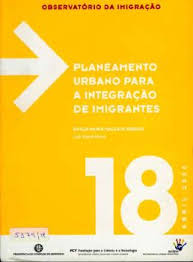
Este estudo, realizado no âmbito do planeamento territorial, regional e urbano, focaliza-se a nível estratégico e baseia-se na sistematização, análise e tratamento de informação proveniente dos recenseamentos populacionais e habitacionais (Instituto Nacional de Estatística, 1991, 2001) segundo duas vertentes: o espaço territorial da Área Metropolitana do Porto (a nível de freguesia e de concelho) e os diferentes grupos populacionais, de acordo com o país de origem (incluindo os portugueses).
...
An optimal control problem with state constraints based on a SEIR model to control the spreading of infectious diseases is considered. The main purpose is apply novel theoretical results to successfully validate the numerical solution, computed via direct method. The problem has simple but yet interesting features that we explore in our analysis. Of particular interest is the fact that the state constraint is of order one and that the solution is normal.
Applied Mathematics
University of Porto, Faculty of Sciences, Porto
Numerical Methods for Optimal Control and Model Predictive Control
Computer Methods for Sciences & Engineering
University of Porto, Faculty of Sciences, Porto
Frobenius-Padé Approximants: Theory, Stability and Conditioning
Applied Mathematics
University of Porto, Faculty of Sciences, Porto
Global Optimization: Models, Algorithms, Software and Applications
University of Aveiro, 12h, Aveiro
Authoring in Mathematica
Wolfram Research, 5h, Illinois, USA
COHiTEC Program
Turning Science into Business
COTEC, Porto Business School
100h, Porto
Jovens Empresários de Elevado Potencial
Associação para o Desenvolvimento de Estudos Aplicados em Ciências Empresariais
400h, Porto
Programa Avançado em Empreendedorismo, Criação de Empresas e Desenvolvimento de Negócios
Associação Nacional de Jovens Empresários
200h, Porto
Elaboração do Plano de Formação
Associação Nacional de Jovens Empresários
36h, Porto
I would be glad to talk to you if you need my assistance in your research.
You can find me at the Lab. I202.